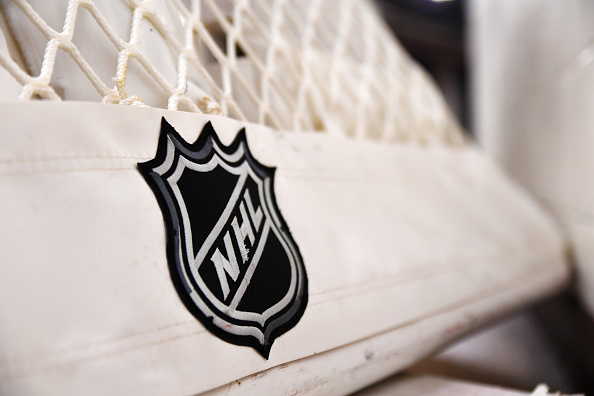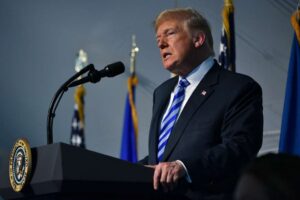In the on-going drama over controlling the information made available to the public over the link between playing sports, head concussions and the neurological disease chronic traumatic encephalopahty (CTE), there is a more sinister villain which still lurks in the shadows: the NHL attack on concussion science.
NHL Attack on Concussion Science Worse Than NFL
Much has been made in the public conversation about the National Football League’s attempts to use junk science to disparage legitimate research and seal evidence of when and how much the league knew about the risk of playing football in relation to brain injuries. The popularity of the NFL worked to its harm in this regard. There is another, similar, entity which has used its relative public indifference to its advantage in this regard, however.
The National Hockey League has been just as much of an obstruction to the progression of medical science evaluating this aspect of human health as the NFL has, and has received less backlash for it.
The Backstory of NHL Concussion Litigation
Like the NFL, the NHL is facing lawsuits levied by former players which allege that the league covered up information about the risks of playing hockey in regards to brain injuries. In 2014, two such suits were brought by different player groups. Then in February of 2015, a third suit by another group joined the fray. In February of 2016, the litany of smaller suits melted into a new class-action lawsuit.
The NHL made an attempt to dismiss the suit altogether, but that motion was denied in May.
The lawsuit is the primary matter of concern for the league, and why the league continues to invest resources in disparaging anything that may prove useful to the plaintiffs. That has included publicly discrediting medical professionals, hiring its own medical “professional” to refute established research, and attempting to meddle in the research currently being done.
How the NHL is Meddling in Medical Research
In January, the NHL requested records from Boston University researchers. A group of scientists at the school are conducting the most comprehensive study into the link between sports and brain injuries yet attempted. The research panel refused the request of Dr. Rick Castellani, who is on the NHL’s payroll, and has gone on the record denying that CTE even exists.
NHL has retained Dr. Rudy Castellani as an expert witness. He questions whether there is even such a disease as CTE. https://t.co/kIQi9Mgvxt
— Rick Westhead (@rwesthead) January 20, 2017
When the research panel refused Castellani’s request, explaining that it would compromise the integrity of the study, the NHL filed a court motion which would have forced the study’s panel to comply with the NHL’s demands.
Shortly after the motion was filed, Dr. Bennet Omalu wrote a letter to the court explaining why it was crucial to the study’s validity for it to be insulated from external influences, especially one with such an obvious reason for bias like the NHL. Omalu was the subject of the feature film, Concussion, which detailed the NFL’s misdeeds. After Omalu’s letter became public, the NHL fired back at Omalu in a legal brief, stating that Omalu displayed an unpatently scientific zeal and that his accusations were hyperbolic and unprofessional.
Why the NHL’s Actions are Dangerous
The actions of the NHL in this drama are telling about the motivations of the league. While the NHL has made changes to increase player safety recently, it’s like a college football program that comes under NCAA investigation imposing a bowl ban on itself. It’s only done in anticipation of future penalties, to create a perception of self-regulation.
If the NHL is as concerned about keeping zeal out of the proceedings and restricting the litigation to just the raw scientific facts that it criticized Omalu, then where was that concern when it hired known CTE-denier Castellani, who has an obvious bias? Furthermore, where was that concern when the NHL took researchers to court to get access to their documents?
It’s true that in a court case, both sides should have equal access to anything submitted as evidence. The researchers at Boston University are not on trial, however. If the plaintiffs in the class-action suit submit any of the BU study as evidence, the NHL’s counsel and Castellani will get access to those documents at that point. Nothing that the NHL has a legal claim to has been denied to the NHL. Attempting to get case documents now is nothing more than an attempt by the NHL to meddle in the study and look for holes in the study should it be submitted as evidence by the plaintiffs.
There’s a greater danger to the NHL’s meddling, however. Just this past week, Canadian researchers diagnosed the remains of a man who never complained of concussions or any traumatic brain injury during his life with CTE. Much is still unknown about this disease, and the NHL’s attempts to discredit researchers and meddle with the biggest study on the matter is putting lives at risk for the greater population, not just former players.
Perhaps the most dangerous aspect of this activity by the NHL is that so many sports fans are unaware of it. As the NHL doesn’t carry the same brand power as the NFL, it hasn’t received as extensive of coverage or been the topic of conversations in sports media. The darkness which results from a lack of attention is exactly what enables misdeeds like these to not only succeed, but go unpunished as well.
The NHL attack on concussion science is just as bad as the NFL’s, but the NHL’s actions have largely flown under the radar, which makes them much more dangerous to the future of medicine in regards to brain injuries, the health of current and future NHL players, and the informed status of the populace in both Canada and the United States.







